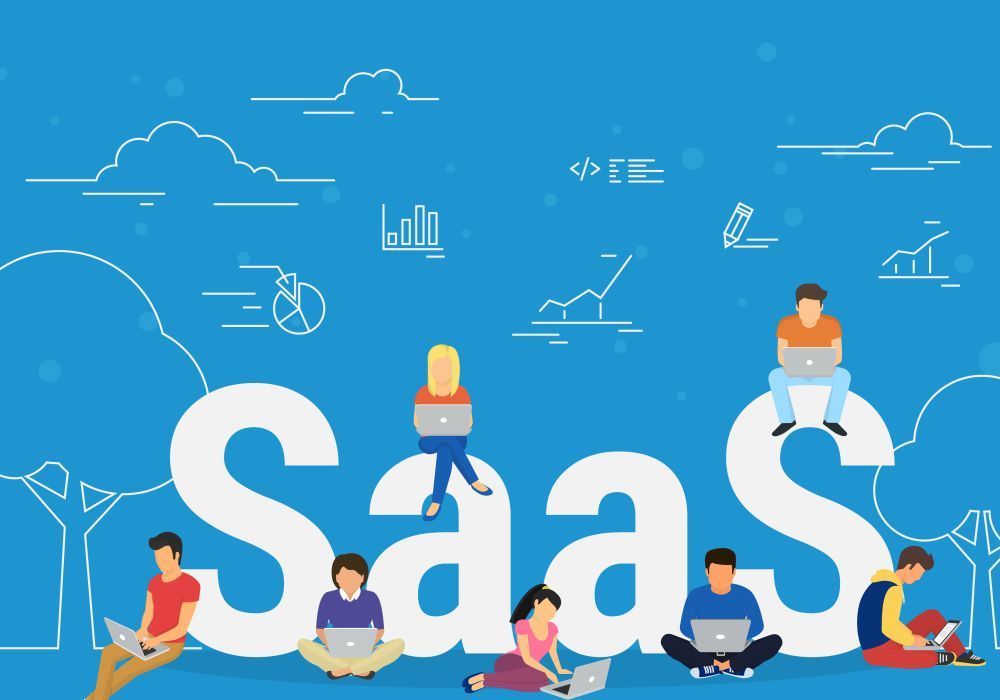
The more digital our world becomes, the more we see SaaS (software as a service) start-ups. They’re needed, too. From web-based software to on-demand software to hosted software, SaaS makes our lives better as business owners and consumers alike.
The SaaS business model will continue to gain momentum globally. In fact, SaaS is now being embraced by businesses of all sizes as the next best solution to on-premise hardware and software growth.
Why do Businesses need SaaS Applications?

According to the Computer Economics survey, roughly 60% of all businesses have now incorporated at least some SaaS solutions into their operations, with approximately 36% planning to expand their investment in the coming months.
Here are just a few reasons why SaaS applications are necessary for your start-up business.
- Flexible and adaptable: SaaS apps allow you to choose the distribution model and quickly change it as your company grows and evolves. Most applications make it incredibly easy to add new users, merge with other frameworks, and enable a new collection of components.
- Good speed and easy to use: With the potential to rapidly grow and execute, you can have a strategic edge and also speed up market advantages. SaaS delivers value for its customers quickly and provides businesses with the versatility that they need to adapt.
- Lower maintenance cost: Traditional (old school) companies would pay a lot of money to update their software. Businesses benefit from SaaS software because these improvements are handled by the vendors, allowing them to rely on or use new features as they become available without having to invest in entirely new software.
- Hassle-Free performance: When the company expands, you will undoubtedly outgrow the server’s power, necessitating the purchase and installation of additional hardware, as well as the hiring and training of many more IT workers. With SaaS, service providers shoulder all of the responsibility for security, availability, and efficiency, making these systems a hassle-free, stable solution that any company looking to expand should consider.
Features to look for in SaaS-related Applications?

- It’s a ready-to-use program that is easy to configure for your own needs. This not only cuts back on installation and setup time but also on time spent troubleshooting future program implementation issues.
- A highly modular system you can quickly integrate with other cloud-based systems. For example, telecom consumers will not need to purchase additional applications or servers; instead, a new SaaS offering will need to be activated.
- A subscription model that you can pay for monthly or annually and that you can upgrade when needed. The ability to alter or cancel a subscription is common in SaaS schemes making it flexible for you.
- It stores data on the provider’s servers and database, rather than on your server or an employee’s computer. Enhanced security is a vital feature for SaaS applications.
- It is user-friendly and offers integration with a variety of smart devices or apps. In recent years, the efficiency and usability of user interfaces have significantly increased, and the learning curve for adoption has been reduced.
Top 10 Applications for SaaS Startups
- Trello

Trello is a powerful project management tool that makes it simple for small companies to work on projects from start to finish. Build a board for your team and use Trello cards to include information like notes, attachments, due dates, and more.
Features:
- Easy to use with drag-and-drop editing
- Labels, tags, and comments for easy organization
- Includes progress meter checklist
Pricing:
- Free
- Business Class: $9.99 per user per month
- Enterprise: $17.50 per user per month
- Slack
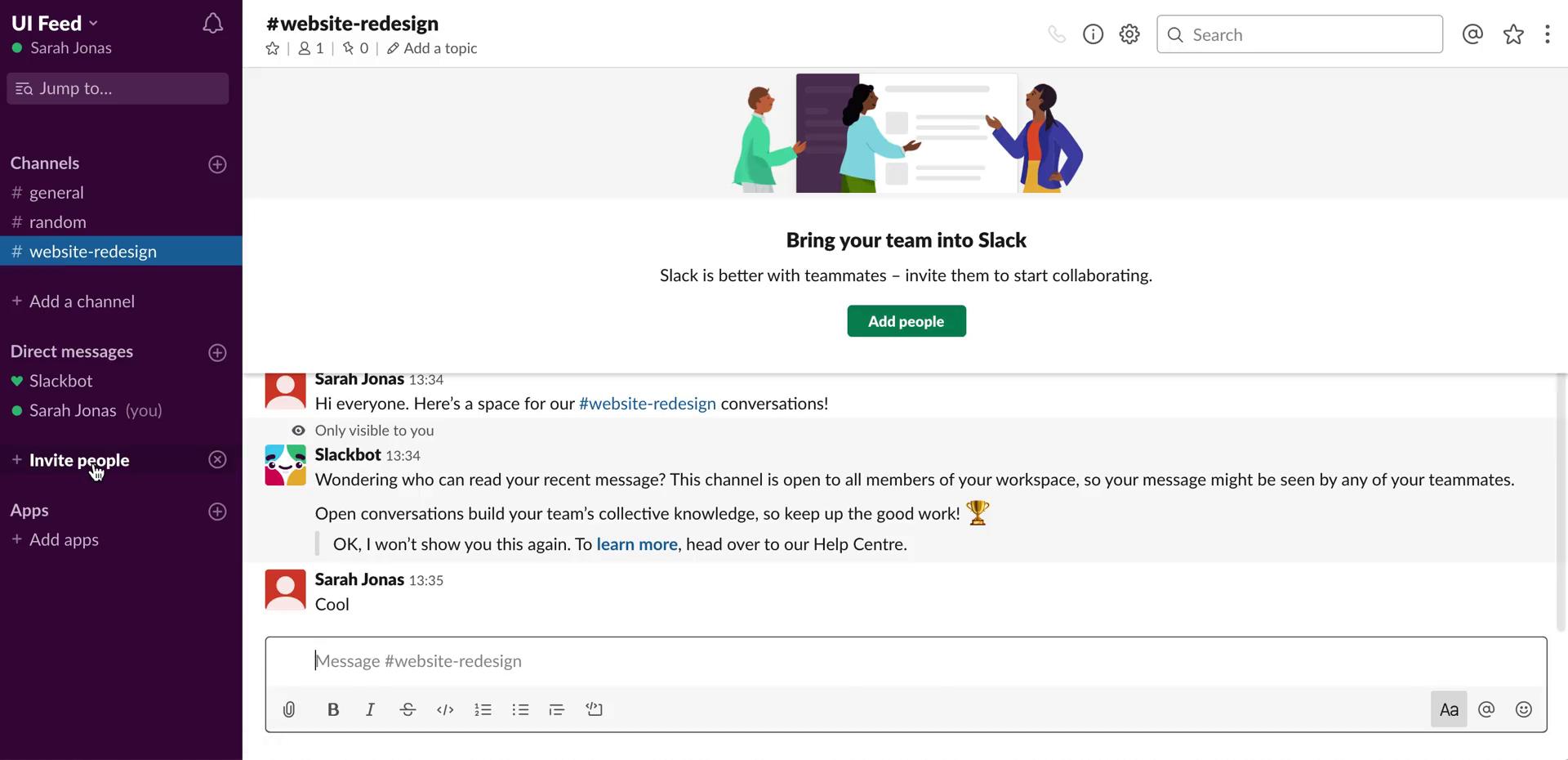
Slack is the most common networking SaaS platform for remote teams, and it centralizes all of your communication needs. It has channels that are chat groups created by users. The whole team communicates, interacts, and exchanges files in these channels.
Features:
- Drag-and-drop file sharing with team
- Real-time conversation among members
- Archiving and indexing within team’s account
Pricing:
- Free
- Standard: $6.67 per user per month
- Plus: $12.50 per user per month
- Enterprise Grid: For large businesses, need to contact Slack Sales Team
- HubSpot
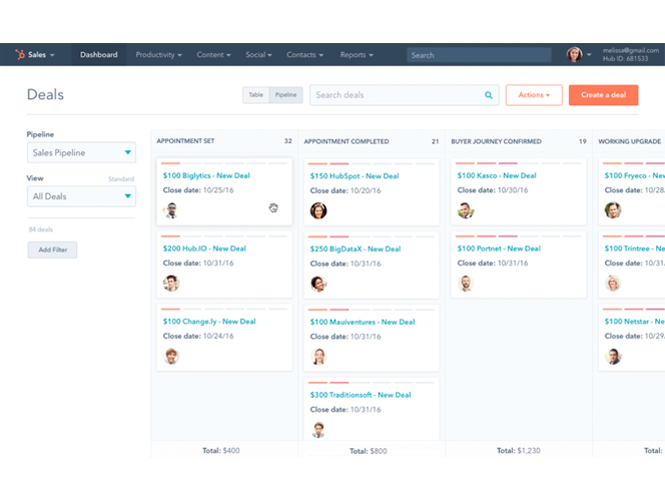
HubSpot is an inbound marketing network with sales and customer relationship management capabilities. To run successful marketing strategies, it helps you to create your own workflows, publish generated content, follow up with clients, and resolve their queries.
Features:
- Easy production of landing pages without IT or designer assistance
- Reach more customers with advertising automation
- Discover, organize, and track keywords
Pricing:
- Free
- Starter: $45 per month
- Professional: $800 per month
- Enterprise: $3,200 per month
- Buffer

Buffer lets you post to various social media pages from a single dashboard. It has smart analytics that will tell you which content is doing well and suggest solutions to help you boost your content’s performance.
Features:
- It chooses the right content for each network to boost your post
- See which blogpost works best by easily comparing different posts
- You can connect eight different networks through Buffer
Pricing:
- Free
- Pro Plan: $15 per month
- Small Business Plan: $99 per month
- Medium Business Plan: $199 per month
- Large Business Plan: $399 per month
- Enterprise: Need to contact Buffer Sales Team
- Zoom
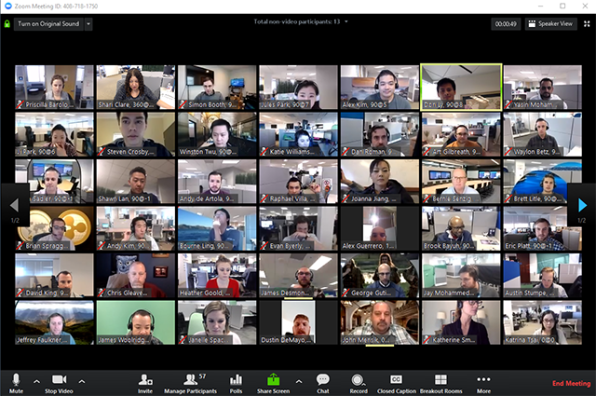
Zoom is a cloud-based video and audio conferencing, chat, and webinar application that is simple to use. Thanks to the pandemic and the emergence of remote working, Zoom’s success skyrocketed in 2020. The most common aspect of Zoom is currently video conferencing.
Features:
- Host up to 1,000 participants in video conferencing
- Host 10,000 viewers during the video conferencing
- Includes Rooms and Workspaces for personal and professional usage
Pricing:
- Free
- Pro: $14.99 per month
- Business: $19.99 per month (up to 10 hosts)
- Enterprise: $$19.99 per month (up to 100 hosts)
- G Suite
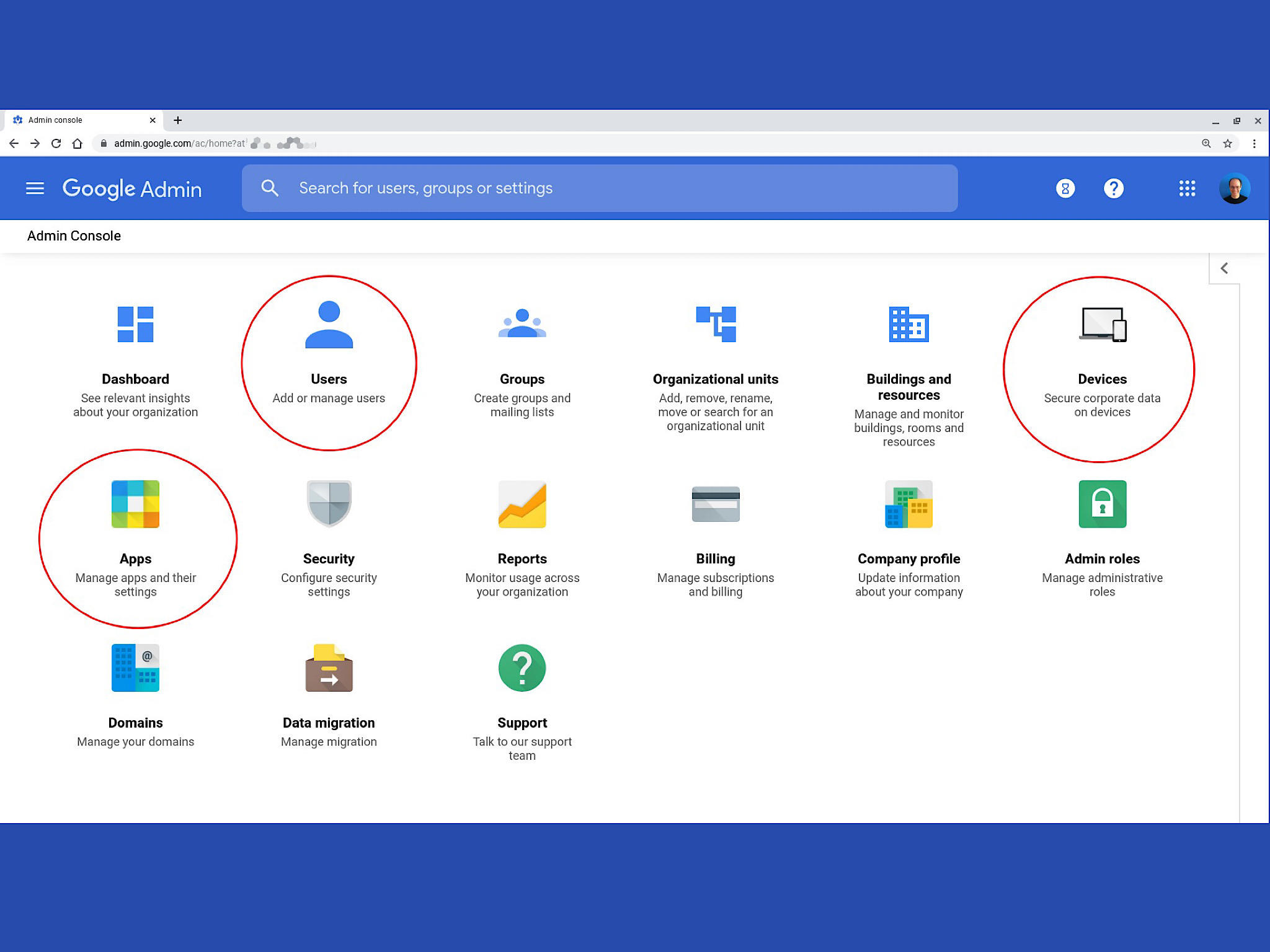
Google G Suite is one of the most cost-effective, flexible, and technical emails, collaboration, storage, and other digital networking tools available to companies, and even individuals. G Suite is a collection of online resources for handling all of your company activities.
Features:
- The company owns all Google Docs, Sheets, and Slides produced by its employees
- Easy document sharing through the same G Suite account
- Google Apps Sync with Microsoft Outlook for workers who choose to use Outlook as their email client
Pricing:
- Basic: $6 per month
- Business: $12 per month
- Enterprise: $25 per month
- Toggl
Toggl is a SaaS product that gives you a clear picture of your team’s workload and alerts you of any possible problems. It comes with auto-synced desktop, iOS, and Android applications, making it a useful time management solution for small companies.
Features:
- Toggl Plan browser extension allows you to create new tasks from anywhere on the internet
- With related data in a spreadsheet, you can start a new project in an existing workspace
- Quick Search for a speedy way to jump from task to task
Pricing:
- Free
- Starter: $10 per month
- Premium: $20 per month
- BambooHR
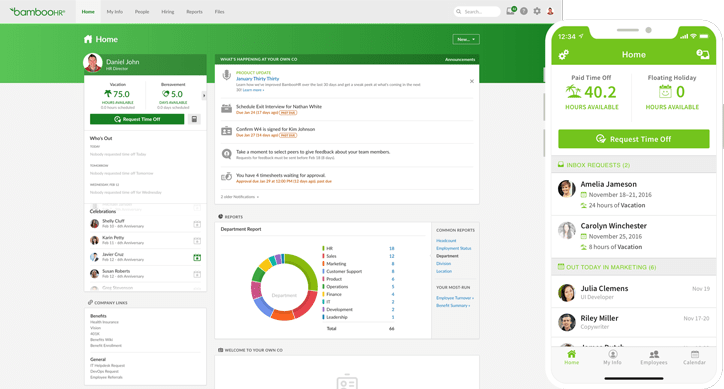
Management system and HR software BambooHR offer personnel data modules, monitoring, and reporting features over the life cycle of the employees. It encompasses remote teams of various applications for operating systems.
Features:
- A centralized employee database that can be linked to other applications
- Applicant management for arranging job opportunities and handling the details of applicants for such openings
- A number of report templates and the ability to create customizable reports
Pricing:
- Essential Package: $6.19 per month
- Advantage Package: $8.25 per month
- DocuSign

DocuSign is an online program that helps users remotely sign papers. Individuals and companies may use it to email, receive, and sign or initial any kind of documents, such as approval forms, contracts, and tax returns.
Features:
- It digitizes the paper trails and automates the whole process
- Mobile version is available to create documents for electronic signatures on the go
- DocuSign integrates with Google, SalesForce, Apple, and other well-known apps
Pricing:
- Individual: $10 per month
- Standard: $25 per month
- Business: $40 per month
- Business Premium: $135 per month
- MailChimp
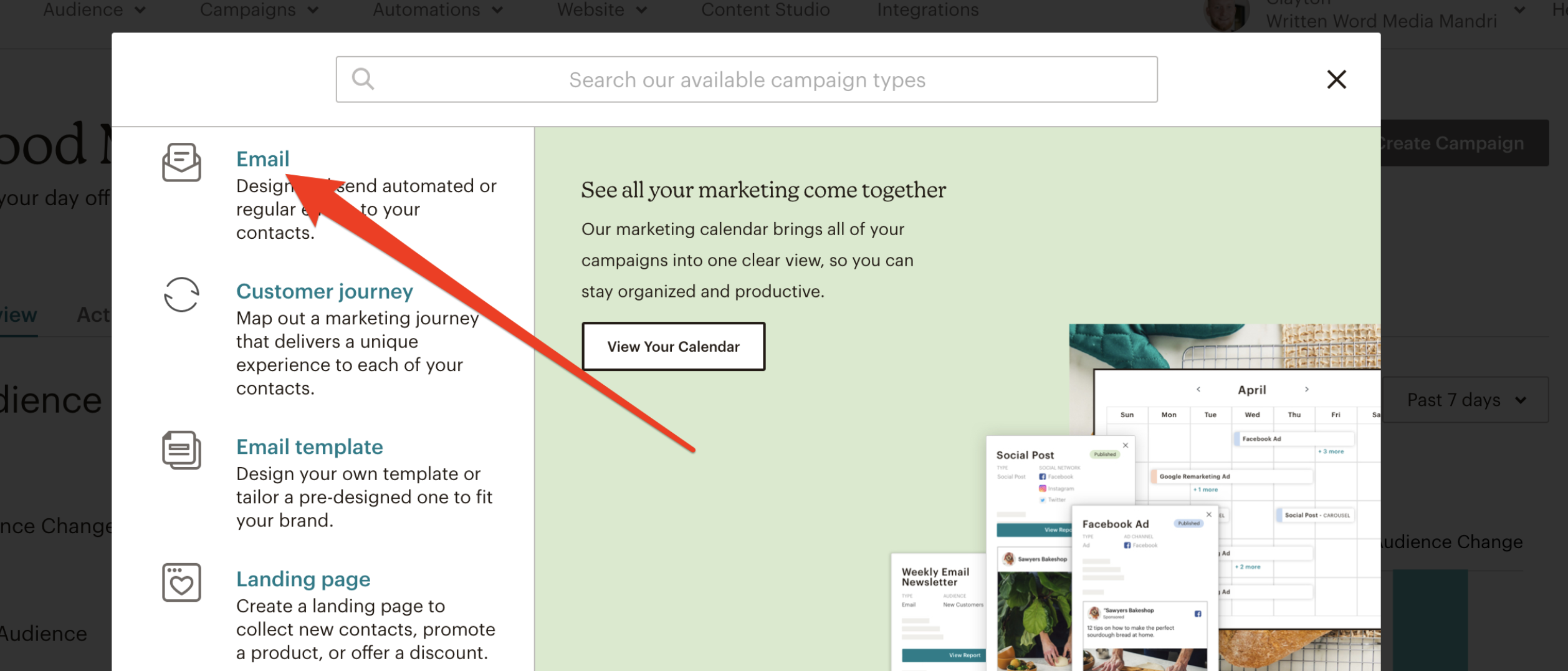
Mailchimp is a marketing automation tool created by companies that use email to communicate with their target audiences. It is a one-stop-shop for managing mailing lists, customizing email templates, and nurturing and automating the entire marketing strategy.
Features:
- Organizes the data into categories to get the information you need
- Recognizes data trends so that the dashboard will show what you need to know
- Uses the information to create automatic messages that are triggered by segments or tags
Pricing:
- Free
- Essentials: $9.99 per month
- Standard: $14.99 per month
- Premium: $299 per month
Takeaway
The number of companies using cloud-based applications with the SaaS business model is growing, owing to the fact that it is based on a subscription model and is incredibly easy to upgrade as the organization grows. Many companies’ current IT plans are no longer including old company applications, which can get pricey as technologies change.
If you’re still using antiquated software, moving to a cloud-based SAAS is the way to go.
